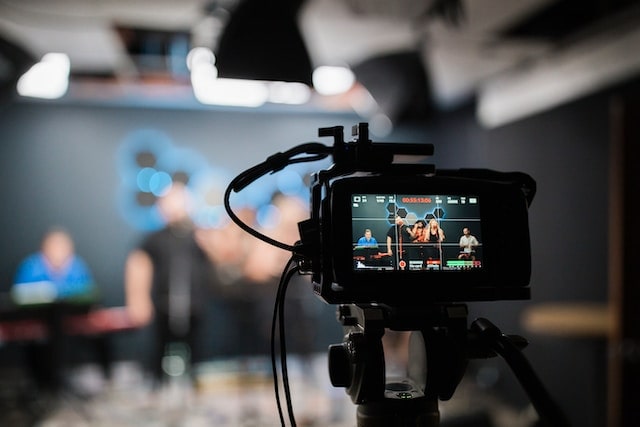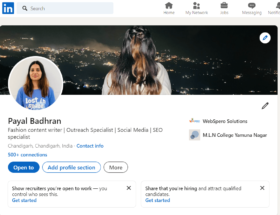If we talk about influencer marketing, it is emerging as a powerful strategy that brands can use to connect with their target market.
Everyday, the engagement on social media platforms and influence of online personalities is increasing.
Due to this, influencer marketing is becoming popular more than ever and adapting to the changing customer behaviors.
Let’s dig in to learn about the latest trends in influencer marketing and how the brands can make use of it effectively to enhance their reach, conversions, and engagement.
Effective Live Streaming and video content

So, you must be aware of the video content that has become the dominant form of media consumption, and influencer marketing has embraced this trend.
Platforms like YouTube, Instagram Reels, TikTok, and Twitch are witnessing a surge in video content creation, enabling influencers to showcase their skills, share product reviews, or create entertaining and educational content.
Today, brands are partnering with influencers to create engaging video campaigns, capitalizing on the authentic storytelling and visual appeal of this medium.
Live streaming, in particular, has gained immense popularity, as it provides real-time interaction and fosters a sense of community between influencers and their followers.
Brands can leverage live streaming sessions for product launches, tutorials, and behind-the-scenes glimpses, thereby driving interest and fostering trust among their target audience.
Targeted Marketing landscape and Niche Influencers
Indeed, the influencer landscape is becoming increasingly popular, brands are relying more on niche influencers to capture the attention of specific demographics or interest groups.
However, niche influencers have a deep understanding of their audience and possess subject matter expertise in specific areas, allowing them to create highly targeted content.
When you collaborate with niche influencers, it helps brands to reach a highly engaged and relevant audience, maximizing the impact of their influencer marketing campaigns.
For instance, a fitness brand may partner with fitness enthusiasts who have a dedicated following interested in health and wellness, thereby enhancing brand credibility and driving conversions.
The impact of Micro-Influencers and Authenticity
Undoubtedly, macro-influencers have traditionally been the go-to choice for brands, but the trend has shifted towards micro-influencers.
But wait! First, you need to know that the micro-influencers are individuals with smaller but highly engaged social media followings, typically ranging from a few thousand to a hundred thousand followers.
The influencers provide a more authentic and relatable connection with their audience, leading to higher engagement rates and increased trust.
Moreover, working with micro-influencers is often more cost-effective, allowing brands to reach niche markets and amplify their message to a more targeted audience.
User-Generated Content and engaging story-telling

If we consider today’s era, it is dominated by ad-blockers and ad-fatigue, and more than ever consumers look for authenticity.
Influencer marketing has responded by embracing the power of authentic storytelling and user-generated content (UGC).
Rather than entirely relying on polished advertisements, brands are partnering with influencers to create genuine and relatable content that resonates with their audience.
All you need to do is to weave brand messages into influencers’ personal stories or leveraging UGC, brands can establish a stronger emotional connection with their target market, leading to increased brand loyalty and advocacy.
Influencer-led Product Development and Co-creation
To strengthen their brand-consumer relationships, some companies are taking influencer collaborations to the next level by involving influencers in product development and co-creation processes.
Brands recognize that influencers have deep insights into their target audience’s preferences, needs, and desires.
By actively involving influencers in product ideation, design, or even limited-edition collaborations, brands can tap into their creativity, authenticity, and knowledge of consumer trends.
This approach not only leads to unique and innovative product offerings but also creates a sense of ownership and exclusivity for the influencer’s audience, driving excitement and engagement.
Furthermore, influencer-led product development initiatives can serve as a powerful marketing tool, generating buzz, fostering brand loyalty, and attracting new customers who are eager to experience the collaborative products.
Influencer Collaboration with Real Causes and Social Impact

Recently, there has been a wider rise in influencers using their platforms to make people aware about the causes and drive social impact.
More and more brands are recognizing the benefits of collaborating with influencers who are passionate about social issues.
By aligning with influencers who have a strong social impact focus, brands can amplify their message and demonstrate their commitment to social responsibility.
Influencers can raise awareness, encourage activism, and drive positive change among their followers.
Such collaborations not only enhance brand reputation but also resonate with consumers who increasingly value brands that support social causes.
Brands that engage in meaningful partnerships with influencers for social impact gain the opportunity to contribute to positive change while also generating brand loyalty and affinity.
Influencer Diversification and Cross-Platform Promotion
As the influencer landscape continues to evolve, brands are recognizing the importance of diversifying their influencer pool and exploring cross-platform promotion.
While Instagram has been the dominant platform for influencer marketing, other platforms such as TikTok, YouTube, and even emerging platforms like Clubhouse and Snapchat are gaining momentum.
By collaborating with influencers across different platforms, brands can expand their reach and tap into new and diverse audience segments.
Moreover, cross-platform promotion allows brands to leverage the unique strengths of each platform, such as TikTok’s short-form video content or YouTube’s long-form storytelling.
By diversifying their influencer partnerships and cross-promoting across platforms, brands can create a more comprehensive and impactful influencer marketing strategy.
The Regulations and Transparency of Collaborating with the Influencer
With influencer marketing growing everyday, regulators and platforms are implementing stricter guidelines to ensure transparency and protect consumers from misleading or deceptive practices. Influencers are now disclosing their partnerships and sponsored content explicitly.
Brands must ensure that their collaborations with influencers adhere to these regulations to maintain trust and credibility.
Further, consumers are increasingly demanding authentic and ethical influencer partnerships.
Brands are responding by prioritizing influencer authenticity, promoting ethical practices, and aligning themselves with influencers who share their values.
The entire focus on transparency and effective influencer marketing is crucial in building long-term relationships with consumers and mitigating reputational risks.
Focusing on Influencer Ambassador Programs and Building long-term Partnerships
Building long-term relationships with influencers is becoming increasingly essential in influencer marketing.
Instead of one-off collaborations, brands are investing in ongoing partnerships and influencer ambassador programs.
The programs involve establishing deeper connections with influencers, aligning their values with the brand’s mission, and nurturing authentic relationships.
When you work closely with influencers over an extended period, your brands can benefit from consistent exposure, a more authentic representation of their products or services, and stronger brand advocacy.
Measuring Return on Investment and Influencer Data Analytics
With the increasing investment in influencer marketing, brands are placing a greater emphasis on data analytics and measuring the return on investment (ROI).
Usually, the influencer marketing platforms and tools are providing more sophisticated analytics capabilities, allowing brands to keep a record for the engagement metrics, audience demographics, reach, and conversions.
By keeping the track of data, brands can evaluate the effectiveness of their influencer campaigns, identify top-performing influencers, and optimize their future marketing efforts.
Moreover, brands are incorporating unique tracking links, promo codes, or customized landing pages to directly attribute conversions and measure the ROI of influencer marketing initiatives.
An effective and efficient data analytics and ROI measurement allows brands to make informed decisions, refine their influencer strategies, and distribute resources effectively to achieve desired outcomes.
Finally…..
Influencer marketing continues to evolve as a powerful strategy for brands to connect with their target audience in the digital age.
By staying up-to-date with the latest trends and leveraging the power of micro-influencers, video content, niche influencers, authentic storytelling, and long-term partnerships, brands can harness the potential of influencer marketing to drive engagement, build trust, and achieve their marketing objectives.
With the consumer preferences and social media platforms evolving everyday, it is crucial for brands to adapt and innovate their influencer marketing strategies with the motive to stay effective and capture the attention of their target market.
So, embrace the power of digital influence and unlock the true potential of influencer marketing!










